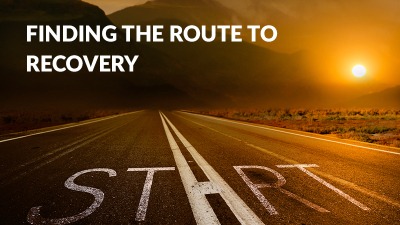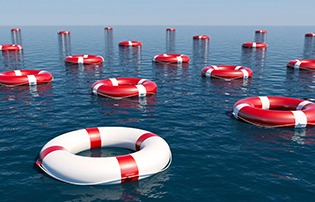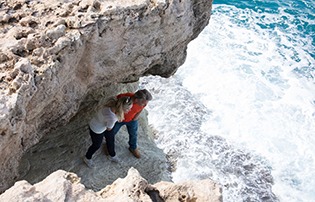I’m on my way to Wernersville, PA, outside of Reading. It will be my first time at Caron Treatment Centers, having first heard of it five years ago when we first discovered our child’s drug and alcohol addiction. Though our child did not receive treatment at Caron, participation in its many regional support groups is open to all families seeking help with addiction and we have since become regular members.
Today, I’m meeting with Ann W. Smith, MS, LMFT, Executive Director of Breakthrough At Caron-Personal Growth Workshop and author of Overcoming Perfectionism: Finding the Key to Balance and Self-Acceptance. As a helping professional and a parent of an addicted child who has found recovery, my plan is to talk with Ann about my interest in personality type and natural strengths and how they impact parent recovery.
I feel excited to meet Ann in person, having seen her give a presentation a few years earlier when she had 200 parents, who came to learn about codependency and recovery, laughing about the absurdity and predictability of family behavioral patterns that originate from early attachment experiences.
I get within several miles of Caron and discover missing road signs and unexpected detours. Now I’m 15 minutes from my appointed time and my nervousness begins to build into a small panic. From there, it’s only a hop, skip and a jump until my body feels the familiar sensations of post traumatic stress and the next thing you know, I’m remembering the mammoth panic we felt five years earlier when the perception of our child’s apparent “brush” with depression suddenly morphed into a discovery of his severe drug and alcohol addiction.
As I zigzag along these backcountry roads and my confusion and lateness converge, I imagine the panic of thousands of parents who make this pilgrimage. I begin to channel the horrific, familiar fear that grips them as they rush to get their child to safety knowing there’s a bed waiting for him/her. We’ve all been warned that’s there’s an ever-so-slight window of time when an addict surrenders to treatment, and often it is accompanied with a last ditch drug fix. The “race-to-rehab” scenarios are endless: your child in the back seat of your car, throwing back 30 prescription pills enroute to treatment, or shooting up heroin in the early morning hours and missing the plane trip home to safety that’s been carefully arranged.
As parents of addicts, we each have our own “catastrophe” story. But we are also connected with each other organically by the moments in which we first discover our child’s addiction and the pivotal times we fight to save their lives. Whether we meet in support groups or battle alone, we become “initiated” into a club we never wished to join, as parents of sons and daughters with a potentially deadly, progressive brain disease.
For some, the process begins with jarring news, “Did you know your son/daughter is selling weed at school?” For others there is a more explosive introduction to the truth: an arrest for DUI or the commission of a criminal act. For still others, there are significant, life-altering consequences: prison time…near or fatal overdoses and suicides. What other physiological disease carries with it such devastating destruction and loss to families and psyches? However, it is reassuring to know that recovery is possible for both those with and affected by addiction. Individuals and families can heal and go on to lead hopeful, healthy, vibrant lives.
Ann shares with me some of her insights gleaned from over thirty years of treating people in need of relief from emotional suffering who undergo transformative personal growth experiences. In her book on perfectionism, she explores the issue of essence, which she defines as “one’s unique blend of personality, temperament, interest, gifts and spirit”. Understanding it, claiming it, and finding ways to bring it into your life is critically important, she says. Discovering one’s essence and inherent strengths is even more important for addicts and their families in order to understand themselves and each other at the deepest level.
Stephen A. Schectman, Ed.D., Caron Staff Psychologist/Adolescent Primary and Young Adult Units, also emphasizes the central role of “essence” and self-understanding as part of a protocol for parents of children with addiction to whom he offers the following advice:
- Put your oxygen mask on first with your commitment to recovery in order to assist your child in their recovery.
- Go to meetings.
- Get assistance from mental health professionals.
- Learn to understand yourself, no matter what is happening on the outside in your life.
There is an additional step that is sometimes overlooked but equally important:
- Work to uncover your personal shame and commit to helping eliminate the social stigma that burdens addicts, those with mental illness, and their afflicted families.
Just as my trip to Wernersville reminded me that the route to recovery often includes missed signs and unanticipated detours, I take hope in knowing that if one maintains focus, asks for direction, and perseveres, there is a good chance that we will reach our personal destination.
 Nancy Clifford, MA is a Personal Growth Coach and writer who uses Transformative Storytelling to help individuals and family members affected by addiction to strengthen recovery, reclaim gifts, and promote healing and wellness. Nancy can be reached through LinkedIn.
Nancy Clifford, MA is a Personal Growth Coach and writer who uses Transformative Storytelling to help individuals and family members affected by addiction to strengthen recovery, reclaim gifts, and promote healing and wellness. Nancy can be reached through LinkedIn.







